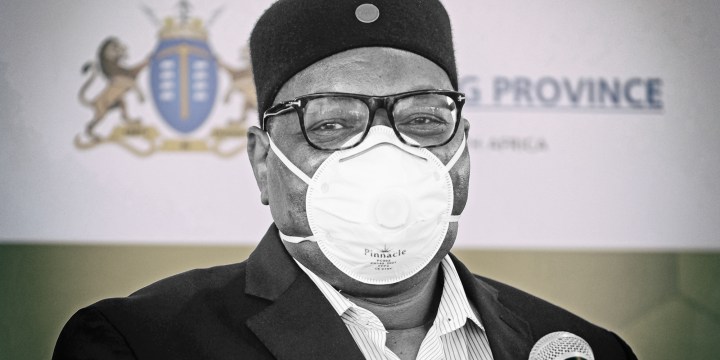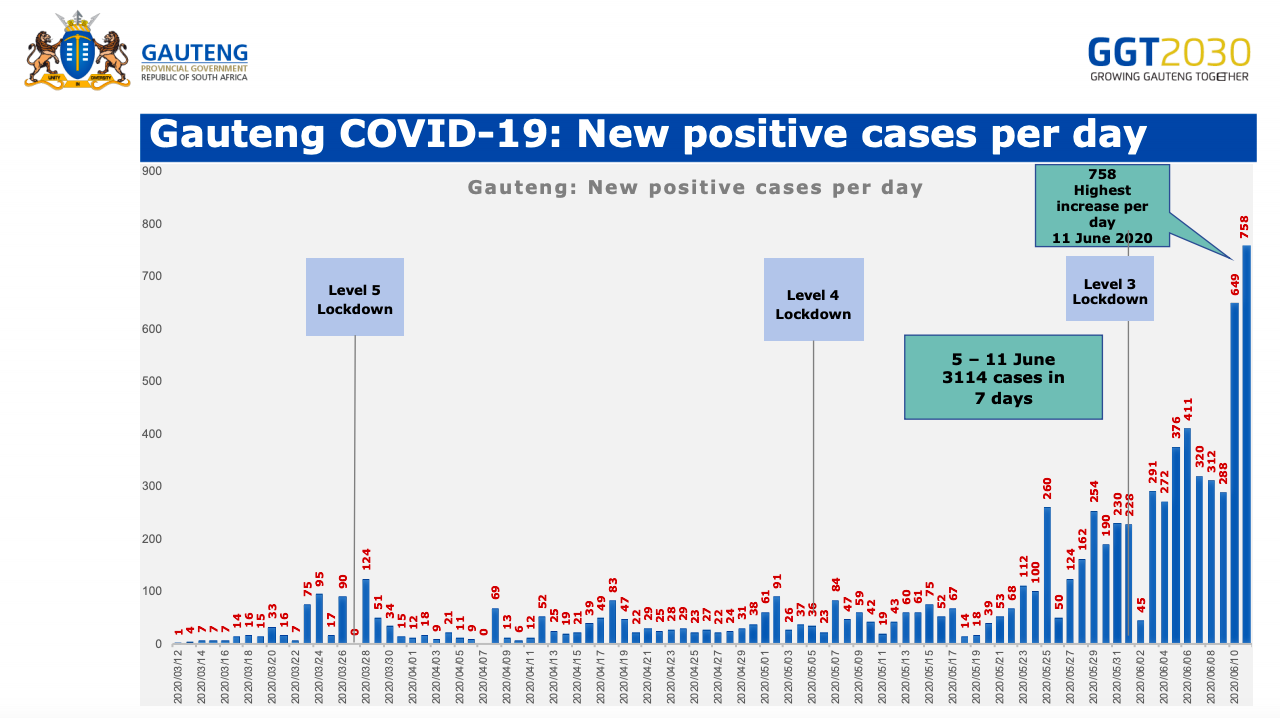NEWSFLASH
July will be a critical month for Covid-19 in Gauteng as numbers double

The number of Covid-19 cases in Gauteng has almost doubled during Level 3 of the lockdown and Premier David Makhura is calling for reinforcements to fight the pandemic before it peaks in the country’s most populated province.
The Gauteng government wants Health Minister Zweli Mkhize to devote resources towards the province’s efforts to hire more medical professionals and increase the number of hospital beds available, as the spread of Covid-19 continues to increase rapidly in the province.
“We have 15.2 million people in this province that we look after. That is our burden and as we go into the next phase of the pandemic we are going to have a lot more people that we have got to worry about,” said Premier David Makhura in a briefing on Friday.
“But we are ready. We have been receiving support but we don’t want to wait until we have reached the level where the Western Cape is. We don’t want to wait for that moment,” he said, as he called for additional support in Gauteng.
Gauteng recorded an average increase of Covid-19 cases of around 50 a day during Levels 5 and 4 of the lockdown. That has shot up since Level 3 was implemented on 1 June.
The number of confirmed Covid-19 cases, hospital admissions and deaths in the province has rapidly increased since the regulations were relaxed.
“The pandemic is gaining momentum in Gauteng province and we’ve got to face this reality head-on,” said Makhura.
“Where there’s no compliance [with regulations] we would like to send a very strong message out there to our communities, to workplaces, that this will completely undo any gains we had made during the lockdown.”
As of 11 June, Gauteng had 7,953 confirmed Covid-19 cases, the second-highest in the country after the Western Cape with 37,422.
That’s an increase of 3,114, up from 4,839 a week earlier.
“You can see that Gauteng province’s confirmed cases, especially in regard to the active cases, the new cases – there’s a spike,” said Makhura.
The number of active cases in the province jumped from 52% to 62% in a week. Twenty more people died of Covid-19 in Gauteng in the last seven days.
Between 27 March and 31 May, during Levels 4 and 5 of the lockdown, 33 people died of Covid-19 in the province. In the 11 days since the country moved to Level 3, 24 more people had died.
Hospital admissions are also rising. There are currently 493 people in Gauteng hospitals for Covid-19 related illnesses, up from 256 a week ago.
Johannesburg accounts for the highest number of new Covid-19 cases in the province over the last week, recording around 1,600 new cases, followed by Ekurhuleni with around 500 and Tshwane with around 400 new cases.

Screenshots (above and below) from Premier Makhura’s presentation reveal the extent of the crisis in Gauteng.
 At the sub-district level, the highest increases were recorded in and around the Johannesburg CBD. Health MEC Bandile Masuku linked the spread of the virus in the area, which has a dense population and multiple public transport hubs, to three funerals and informal traders returning to work.
At the sub-district level, the highest increases were recorded in and around the Johannesburg CBD. Health MEC Bandile Masuku linked the spread of the virus in the area, which has a dense population and multiple public transport hubs, to three funerals and informal traders returning to work.
Makhura said he was “extremely concerned” about the spread of the virus in the Johannesburg and Tshwane CBDs. He said that allocating resources to identified hotspots was important and had largely limited the spread of coronavirus around Carletonville, which had seen a large increase in cases the previous week, linked to mineworkers returning to work.
“We want to be proactive as Gauteng province,” said the premier.
The province has 8,301 beds available and aims to make an additional 1,575 beds available by the end of July. The peak of the pandemic is expected to hit the province in August or September.
“July is a critical month for us. All modelling that is done at a national level and at a provincial level indicates that July is a critical month for us,” said Makhura.
Masuku recently told the Gauteng Provincial Legislature that the peak would depend on the government’s interventions and whether the public adheres to the regulations.
“If we’re just going to lay as sitting ducks, it might be a big problem. So we still need to put a lot of effort in enforcement of regulations, enforcement of physical distancing, enforcement of hygiene and also the restrictions of big gatherings or overcrowded places,” said Masuku.
A total of 338,211 tests have been conducted in Gauteng, an increase of over 70,000 in the last week. Around 7.4 million people have been screened and 17,712 contacts of those who have tested positive have been traced.
Covid-19 cases have also been recorded at schools in the province, which reopened for Grade 7 and 12 students on 8 June. Makhura said 56 cases have been confirmed at 54 schools, while 34 are under investigation. He said schools are required to close briefly to be sanitised after a case is recorded. DM
















 Become an Insider
Become an Insider